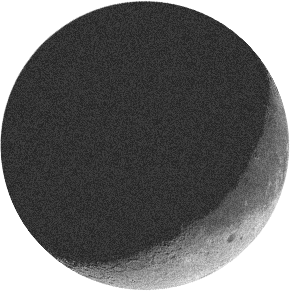RARA Fellow
Pioneering space resource science through lunar water exploration to advance human expansion to the Moon and Mars



Pioneering space resource science through lunar water exploration to advance human expansion to the Moon and Mars
SCROLL
FELLOW PROFILE
Obtained a Ph.D. from the Department of Mineralogy, Graduate School of Science, the University of Tokyo in 1995.
Previously worked at Blaise Pascal University (France), Akita University, and Osaka University. Currently serving as a Professor in the Research Organization of Science and Technology, Ritsumeikan University.
Participated in several lunar exploration projects, including the JAXA Lunar Exploration project “KAGUYA.” Authored several books on lunar science, and “The Moon is Our Space Port” (Shin-Nihon Shuppansha) was selected as an assigned book (junior high school division) for the 2017 National Youth Reading Report Contest.
Developing a Lunar Water Resource Exploration Instrument, Creating “Space Resources Science” Initiated by the Development of Lunar Ice Mines, and Supporting Human Expansion in the Solar System
Exploration and mining of lunar polar water resources, the first commercial space resource in human history, will soon begin. Starting with the exploration of these water resources and the elucidation of the water molecule accumulation mechanism, I aim to establish “space resources science” and strongly support the advancement of mankind to the Moon and Mars.
We are now at a significant turning point in human history, where the Age of Discovery and the Industrial Revolution are occurring simultaneously. The resources that fueled the old Industrial Revolution were three types of rocks: iron ore, limestone, and coal. In the Age of Space Discovery, a crucial resource is water ice in the lunar polar regions. Converting this ice into rocket fuel will accelerate humanity’s exploration of the solar system. Understanding the origin of water will also shed light on the origins of life on celestial bodies in the solar system.
Mining led to the development of geology, and the study of fossils uncovered through mining gave rise to the theory of evolution. Having studied geology in Japanese mines, I am eager to contribute to humanity’s understanding and advancement in lunar ice mining by establishing the field of “Space Resource Science.” Additionally, I hope to support Japan in leading the way towards a peaceful space order as the international framework for resource mining on the Moon takes shape.
In FY2023, the SLIM project demonstrated precise landing techniques on the Moon, and after FY2024, the Lunar Polar Explorer LUPEX project will begin water resource exploration in the polar regions of the Moon. Since I am participating in the development and operation of observation instruments for both of these projects, I will acquire the latest data from lunar exploration and conduct laboratory experiments to elucidate the mechanism of water resource concentration. I also hope to organize a research group on space resources, leveraging the acquired cutting-edge data.
In the past, the Seven Sisters drove the global economy through oil development, with the multinational company Schlumberger playing a key role by conducting scientific exploration of oil fields worldwide. Lunar water resources, as underground assets, hold the potential to usher in an era where humanity expands its living space into the solar system. The fields related to lunar resource development are diverse, including unmanned and manned lunar exploration, fuel manufacturing plant construction, legislation for space resource commercialization, and the economics of space resources. Just as terrestrial mines once brought together expertise from various fields, space mining will similarly require interdisciplinary collaboration.
Partnerships:
This is my first attempt to apply Earth resource development technology to space. I aim to learn from experts in exploring and mining Earth’s resources and collaborate with researchers and companies interested in extending their activities to the Moon and Mars. I also believe that expertise in observing extreme environments in space will be valuable for studying similar conditions on Earth.
Research collaborations:
It would be great if we could share the pioneering spirit to explore new frontiers and fields. It would be great if we could stimulate each other in our respective fields of expertise while collaborating in a fun and exciting atmosphere. I also believe that successful collaboration requires setting concrete goals for creating tangible outcomes, not just exchanging knowledge. Defining clear criteria for failure or success is essential for effective collaboration.





